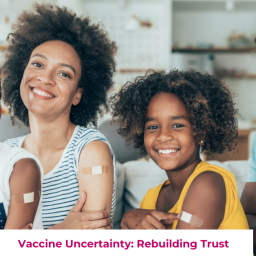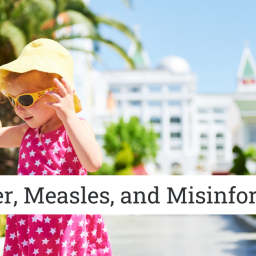The COVID-19 pandemic significantly altered many facets of our daily lives, including our approach to routine healthcare. One notable consequence is the increase in vaccine hesitancy among parents, particularly regarding childhood vaccinations. As pediatricians, it is essential to understand and address this growing concern to ensure the health and well-being of children and our communities.
The Current Landscape
A recent survey by the American Academy of Pediatrics (AAP) reveals a troubling trend: about half of U.S. primary care pediatricians have noticed a decrease in routine childhood vaccinations. This survey, conducted from August 2022 to January 2023, highlighted that vaccine hesitancy is becoming a pervasive issue, with nearly all pediatricians reporting that families have either delayed or refused vaccinations in the past year.
Key Barriers to Vaccination
The survey identified several barriers contributing to vaccine hesitancy:
- Parental Hesitancy: Over half of the pediatricians cited this as a moderate or significant barrier. Concerns about vaccine safety and efficacy have been amplified by misinformation, leading parents to question the necessity of vaccines.
- Missed Well-Child Visits: The pandemic disrupted routine healthcare visits, making it challenging to keep up with the vaccination schedule.
- Mistrust of Pharmaceutical and Physician Organizations: This mistrust has grown during the pandemic, with some parents doubting the motivations behind vaccine recommendations.
The Role of Pediatricians
Despite these challenges, pediatricians play a vital role in mitigating vaccine hesitancy. The survey found that 93% of pediatricians believe that counseling families about the benefits of vaccines is at least somewhat effective in overcoming hesitation. Open, empathetic communication is essential. Here are some strategies that can help:
- Listen and Empathize: Understand parents’ concerns without judgment is important. This creates a trusting environment where parents feel heard and respected.
- Provide Clear Information: Share evidence-based information about the safety and efficacy of vaccines. Use understandable language and credible sources to counter misinformation.
- Share Personal Experiences: Relating personal stories about the positive impacts of vaccination can be powerful. Parents often trust the firsthand experiences of their healthcare providers.
- Highlight Community Benefits: Explain the concept of herd immunity and how vaccinating their child helps protect vulnerable members of the community.
Looking Ahead
The survey showed that nearly half of the pediatricians expect the current level of hesitancy to persist, while a significant portion anticipates an increase. Vaccine hesitancy is a complex issue exacerbated by the COVID-19 pandemic. It demands a multifaceted approach that combines empathy, education, and trust-building. As healthcare providers continue to navigate these challenges, let’s remember the profound impact that vaccines have had on public health and strive to ensure that every child receives the protection they deserve.
The CDC has some helpful resources for health care professionals to start or continue effective vaccine conversations to answer parent questions.


